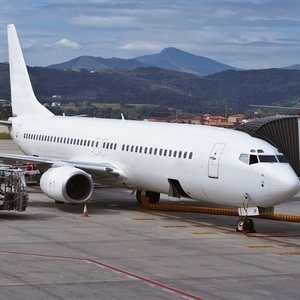Norway to implement biofuel mandate for aviation fuel in 2020

October 11, 2018
BY Erin Krueger
Norway is taking action to require the use of renewable aviation fuel. On Oct. 4, the country’s Ministry of Climate and Environment announced it will require aviation fuel to contain at least 0.5 percent advanced biofuel starting in 2020.
According to information released by the ministry, the mandate will require those who sell aviation fuel in Norway ensure 0.5 percent of that fuel comes from advanced biofuels, defined as those made from waste and residues. Biofuels made from “problematic raw materials,” such as palm oil, will not qualify to meet the mandate.
Information released by the government indicates the mandate will be flexible in that it will be up to obligated parties to determine when and where they blend the required biofuel.
The Danish Environmental Protection Agency estimates the mandate will reduce greenhouse gas (GHG) emissions by 14,000 metric tons during the first year.
Advertisement
Advertisement
Climate and Environmental Minister Ola Elvestuen said the government aims to require aviation fuel to contain 30 percent sustainable content by 2030. He also noted that the mandate aims to ensure a market for alternative aviation fuels in Norway. It is also expected to help facilitate the development of an alternative aviation fuel industry within the country.
Advertisement
Advertisement
Related Stories
Global digital shipbuilder Incat Crowther announced on June 11 the company has been commissioned by Los Angeles operator Catalina Express to design a new low-emission, renewable diesel-powered passenger ferry.
ATR and French SAF aggregator ATOBA Energy on June 19 signed a memorandum of understanding (MOU) to explore ways to facilitate and accelerate sustainable aviation fuel (SAF) adoption for ATR operators.
Argent Fuels, a leading provider of carbon-saving fuels in the UK, is accelerating its efforts to support a greener future. The expansion of its High Blend Biodiesel will supply to bus, coach, HGV fleets and rail in the south of the UK.
Sprague Operating Resources LLC on June 24 announced it has been selected by the New York City Department of Citywide Administrative Services to supply renewable diesel for its marine fleet, including the iconic Staten Island Ferry.
On June 17, the NYC Department of Citywide Administrative Services and the Department of Transportation announced the start of the Staten Island Ferry’s transition to renewable diesel, marked by the delivery of the first barge of fuel.
Upcoming Events










